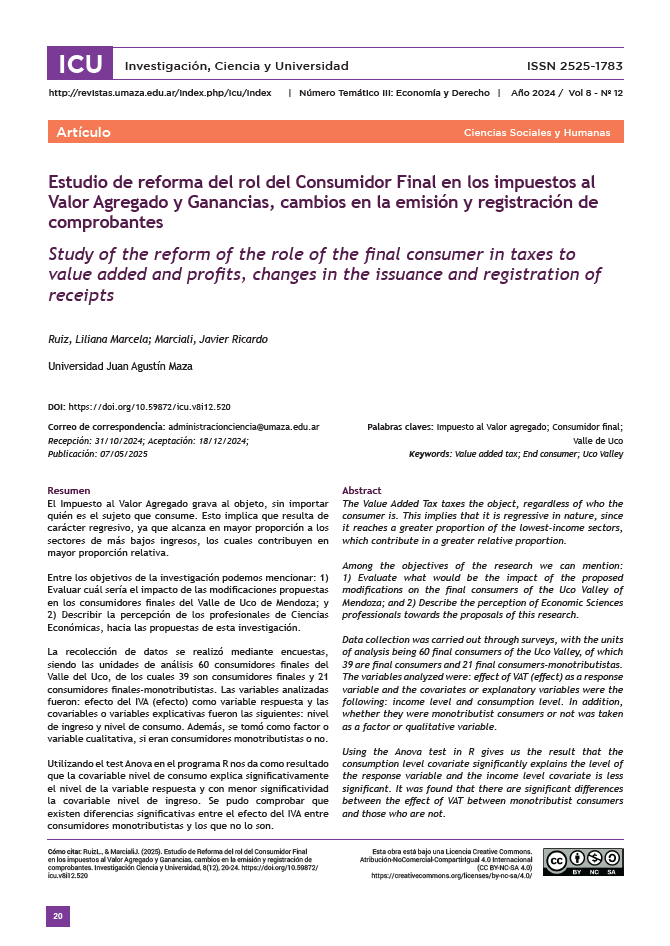Estudio de reforma del rol del Consumidor Final en los impuestos al Valor Agregado y Ganancias, cambios en la emisión y registración de comprobantes
DOI:
https://doi.org/10.59872/icu.v8i12.520Keywords:
Impuesto al Valor Agregado, Consumidor Final, Valle de UCOAbstract
The Value Added Tax taxes the object, regardless of who the consumer is. This implies that it is regressive in nature, since it reaches a greater proportion of the lowest-income sectors, which contribute in a greater relative proportion.
Among the objectives of the research we can mention: 1) Evaluate what would be the impact of the proposed modifications on the final consumers of the Uco Valley of Mendoza; and 2) Describe the perception of Economic Sciences professionals towards the proposals of this research.
Data collection was carried out through surveys, with the units of analysis being 60 final consumers of the Uco Valley, of which 39 are final consumers and 21 final consumers-monotributistas. The variables analyzed were: effect of VAT (effect) as a response variable and the covariates or explanatory variables were the following: income level and consumption level. In addition, whether they were monotributist consumers or not was taken as a factor or qualitative variable.
Using the Anova test in R gives us the result that the consumption level covariate significantly explains the level of the response variable and the income level covariate is less significant. It was found that there are significant differences between the effect of VAT between monotributist consumers and those who are not.
Downloads

Published
How to Cite
Issue
Section
Categories
License
Copyright (c) 2024 Liliana Ruiz, Javier Marciali

This work is licensed under a Creative Commons Attribution-NonCommercial-ShareAlike 4.0 International License.





















